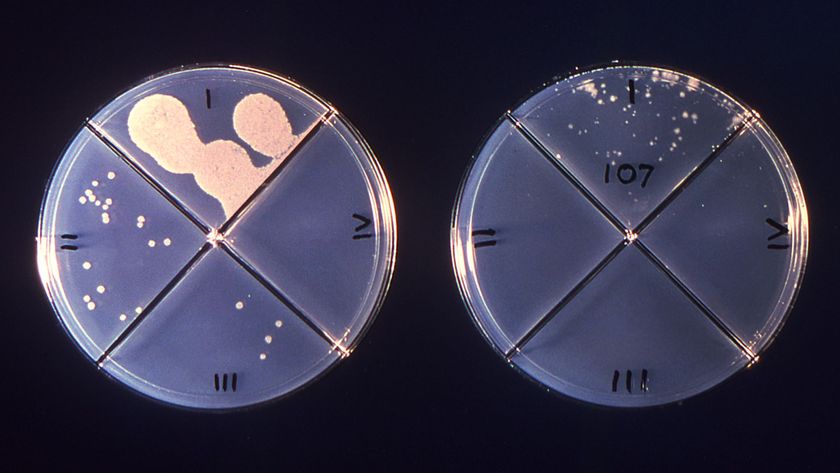Newly Discovered Virus Lives in Half the World's Population

A virus that lives in the human gut has just been discovered, and to the surprise of scientists, it can be found in about half the world's population, according to a new study.
While it's not yet clear exactly what the virus does, scientists are eager to find out whether it promotes health or influences susceptibility to certain conditions, said Robert Edwards, a bioinformatics professor at San Diego State University and one of the researchers who worked on the study.
The researchers first uncovered hints of the virus after analyzing DNA from fecal samples of 12 people. They found a cluster of viral DNA that all the samples had in common, Edwards said.
Next, the researchers searched a large database of genetic sequences in samples taken from people living on several different continents, looking for the virus's DNA sequence, and found the virus in 75 percent of samples of human feces. However, some of these samples were from the same person, Edwards said, so after taking this into account, the researchers estimated that the virus is present in about half of all people. [5 Ways Gut Bacteria Affect Your Health]
But how could such a common virus go unnoticed for so long? One of the reasons may be that previously, most researchers compared DNA from current samples only to DNA sequences already known to exist, Edwards said. But in the new study, the researchers first compared the DNA in their samples to one another, looking for common sequences.
"[We] did some different kinds of comparisons, and it jumped right out at us as being something important because it was abundant," told Edwards Live Science.
The new virus, which the researchers have named crAssphage, is a type of virus known as a bacteriophage, meaning it infects bacteria. It's likely that crAssphage infects a very common type of gut bacteria called Bacteroidetes, according to the study.
Sign up for the Live Science daily newsletter now
Get the world’s most fascinating discoveries delivered straight to your inbox.
Although the researchers have shown that the virus DNA exists in nature, they have not yet been able to get the virus to replicate in the lab, or get a picture of it.
"We know it's there, but we can't capture it quite yet," Edwards said.
The researchers think the virus could be involved in controlling the number of Bacteroidetes bacteria in the gut, Edwards said.
The new finding "adds another piece to the puzzle" in helping researchers understand how microbes in the intestine affect human health, said Dr. Amesh Adalja, an infectious disease physician at the University of Pittsburgh and a representative of the Infectious Disease Society of America who was not involved in the study. Much more research will be needed to see how this virus interacts with bacteria in the gut and how it could potentially affect health, he said. "There's definitely a lot of avenues of research that the discovery of this [bacterio]phage will open up," Adalja said.
Adalja noted that just because the virus is common doesn't mean it's benign. "The fact that it's there in so many people means that whatever it's doing is not causing something rare," Adalja said. "But there are enough common conditions that affect humans, that there may be a role there," Adalja said, citing obesity and cancer as examples of such conditions.
The study is published today (July 24) in the journal Nature Communications.
Follow Rachael Rettner @RachaelRettner. Follow Live Science @livescience, Facebook & Google+. Original article on Live Science.

Rachael is a Live Science contributor, and was a former channel editor and senior writer for Live Science between 2010 and 2022. She has a master's degree in journalism from New York University's Science, Health and Environmental Reporting Program. She also holds a B.S. in molecular biology and an M.S. in biology from the University of California, San Diego. Her work has appeared in Scienceline, The Washington Post and Scientific American.











